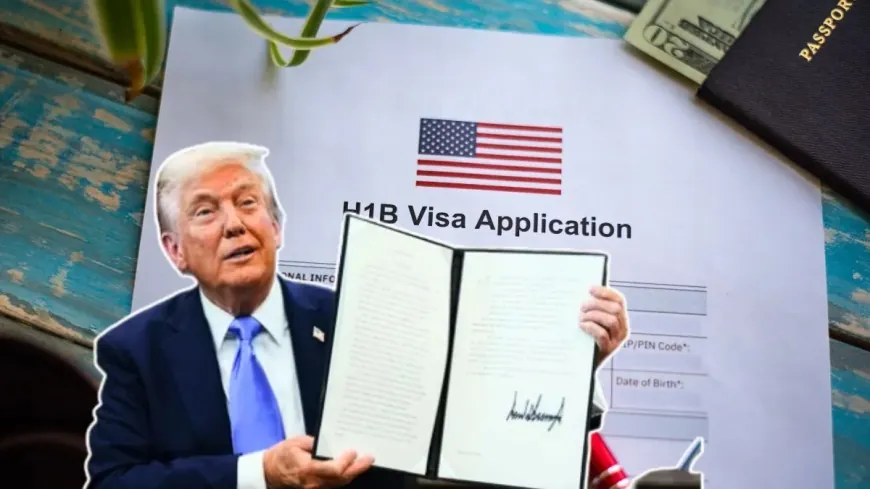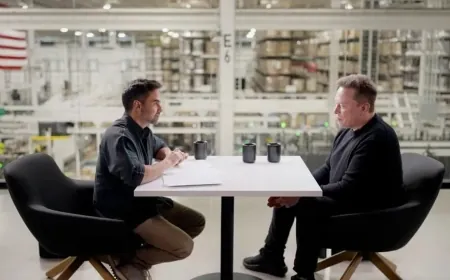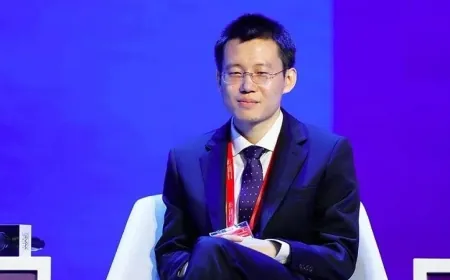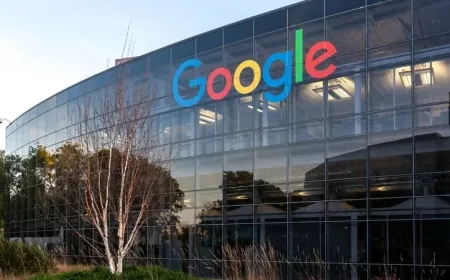US Lawmakers Urge Trump to Cancel $100K H-1B Fee, Warn It Could Hurt US AI Leadership and India Ties
US lawmakers urge Trump to withdraw $100K H-1B visa fee, warning it could slow AI innovation and strain growing tech ties with India.

Washington, D.C. — A group of U.S. lawmakers has urged President Donald Trump to withdraw his recent order that imposes a $100,000 fee on H-1B visa applications, warning that the move will hurt America’s economy, discourage skilled professionals from coming to the U.S., and strain relations with India — one of the country’s closest technology partners.
The letter, sent on Thursday and signed by Representatives Jimmy Panetta, Ami Bera, Salud Carbajal, and Julie Johnson, called on the president to suspend the September 19 order titled “Restriction on Entry of Certain Nonimmigrant Workers.” The new rule significantly raises the cost of hiring foreign professionals and adds tighter restrictions on visa applications.
“The H-1B programme is vital for the U.S. economy, our national security, and our relationship with India,” the lawmakers wrote. “The new fee and restrictions will only push away the talent that keeps America competitive.”
The H-1B visa allows U.S. companies to hire skilled professionals from other countries in fields such as engineering, information technology, medicine, and scientific research. Indian nationals make up nearly 71 percent of all H-1B visa holders, and many of them work in key American companies, universities, and startups.
Congressman Ami Bera, who co-chairs the Congressional Caucus on India and Indian Americans, said the new fee would discourage top professionals from applying and hurt sectors like artificial intelligence, cybersecurity, and biotechnology.
“At a time when other countries are working hard to attract skilled talent, the United States should not be putting up barriers,” Bera said.
Congressman Jimmy Panetta said the new policy will harm smaller companies the most. “Startups and research institutions depend on international talent to grow. A $100,000 fee will shut them out completely,” he said. “This rule doesn’t protect American workers — it only makes innovation harder.”
The lawmakers also warned that the decision could affect U.S.–India relations, which have grown stronger in technology, defense, and education. They said Indian professionals contribute not only to American innovation but also to community life and local economies across the United States.
“Inviting skilled workers from India has always strengthened our democratic partnership,” the letter said. “Restricting that exchange will send the wrong signal to a trusted ally.”
The Trump administration has argued that the higher fee will protect U.S. workers by discouraging companies from relying on foreign labor. But many experts and business groups disagree. They say that American firms use H-1B visas mainly to fill jobs that are hard to find locally, such as advanced engineering and computer science roles.
Economists also warn that the new rule could lead to higher costs for businesses, delayed projects, and even job lossesin industries that depend on specialized talent. Technology companies have already expressed concern that the U.S. might lose its competitive edge if top talent chooses to move to other countries like Canada, the U.K., or Australia, where immigration rules are more welcoming.
Several organizations, including chambers of commerce and research institutions, have called for the rule to be withdrawn or modified. They argue that instead of imposing steep fees, the government should focus on improving oversight, preventing visa misuse, and supporting training for both American and foreign workers.
The lawmakers’ letter ends with a direct appeal to President Trump to cancel the September 19 order and work with Congress on a fair reform plan that protects U.S. workers without harming the country’s long-standing advantage in science and technology.
“This is about keeping America strong in the industries that define the future,” the lawmakers wrote. “We need policies that attract talent, create jobs, and strengthen our global leadership — not drive it away.”
Also Read: Trump Introduces $1M Gold & $5M Platinum Investor Visas for U.S. Residency































































